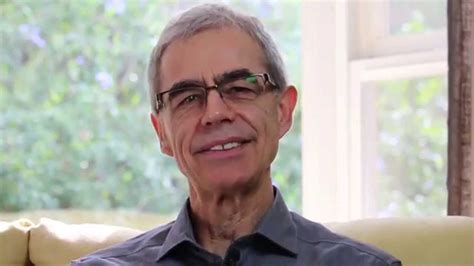A Quote by Chauncey Wright
Natural Selection never made it come to pass, as a habit of nature, that an unsupported stone should move downwards rather than upwards. It applies to no part of inorganic nature, and is very limited even in the phenomena of organic life.
Related Quotes
It may be said that natural selection is daily and hourly scrutinizing, throughout the world, every variation, even the slightest; rejecting that which is bad, preserving and adding up all that is good; silently and insensibly working, wherever and whenever opportunity offers, at the improvement of each organic being in relation to its organic and inorganic conditions of life.
Nature is man's inorganic body -- that is to say, nature insofar as it is not the human body. Man lives from nature -- i.e., nature is his body -- and he must maintain a continuing dialogue with it is he is not to die. To say that man's physical and mental life is linked to nature simply means that nature is linked to itself, for man is a part of nature.
The whole analogy of natural operations furnishes so complete and crushing an argument against the intervention of any but what are termed secondary causes, in the production of all the phenomena of the universe; that, in view of the intimate relations between Man and the rest of the living world; and between the forces exerted by the latter and all other forces, I can see no excuse for doubting that all are co-ordinated terms of Nature's great progression, from the formless to the formed from the inorganic to the organic from blind force to conscious intellect and will.
Nothing comes to pass in nature, which can be set down to a flaw therein; for nature is always the same, and everywhere one and the same in her efficacy and power of action: that is, nature's laws and ordinances, whereby all things come to pass and change from one form to another, are everywhere and always the same; so that there should be one and the same method of understanding the nature of all things whatsoever, namely, through nature's universal laws and rules.
We are compelled by reflection to recognize that God is not to be placed against the material world [as in Christianity], but must be placed as a 'divine power' or 'moving spirit' within the cosmos itself ... All the wonderful phenomena of nature around us, organic as well as inorganic, are only various products of one and the same original force.
In attempting to explain geological phenomena, the bias has always been on the wrong side; there has always been a disposition to reason á priori on the extraordinary violence and suddenness of changes, both in the inorganic crust of the earth, and in organic types, instead of attempting strenuously to frame theories in accordance with the ordinary operations of nature.
Synthetic or inorganic substances do not contain any 'life force'; they are not dynamic. Everything is made of chemicals, but organic substances like essential oils have a structure which only mother nature can put together. They have a life force, an additional impulse which can only be found in living things.
Mental patterns do not originate out of inorganic nature. They originate out of society, which originates out of inorganic nature. And, as anthropologists know so well, what a mind thinks is as dominated by biological patterns as social patterns are dominated by biological patterns and as biological patterns are dominated by inorganic patterns. There is no direct scientific connection between mind and matter. As the atomic scientist, Niels Bohr, said, "We are suspended in language." Our intellectual description of nature is always culturally derived.
A highly developed moral nature joined to an undeveloped intellectual nature, an undeveloped artistic nature, and a very limited religious nature, is of necessity repulsive. It represents a bit of human nature a good bit, of course, but a bit only in disproportionate, unnatural and revolting prominence.
It is impossible! It has never happened - it cannot happen in the very nature of things. Marriage is something against nature. Marriage is an imposition, an invention of man - certainly out of necessity, but now even that necessity is out of date. It was a necessary evil in the past, but now it can be dropped. And it should be dropped: man has suffered enough for it, more than enough. It is an ugly institution for the simple reason that love cannot be legalized. Love and law are contradictory phenomena.






































